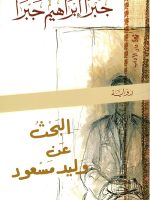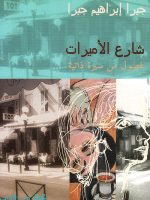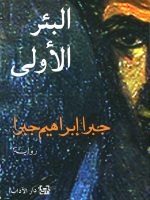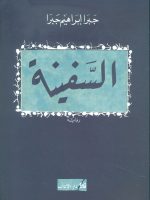Jabra Ibrahim Jabra (1919–1994) was a Palestinian author, painter, and art critic of Syriac Orthodox origin. He was born in Bethlehem during the British Mandate and settled in Iraq after the 1948 war, where he taught at the University of Baghdad. In 1952, he was awarded a Rockefeller Foundation Fellowship in the Humanities to study English Literature at Harvard University. He produced some 70 novels, books, and translations, and his work has been translated into more than a dozen languages. Jabra was also a painter and a pioneer of the Hurufiyya movement, which sought to integrate traditional Islamic art into contemporary art through the decorative use of Arabic script.
Born in Beit Adana, he studied in Jerusalem, England, and the United States, then moved to work in Iraqi universities to teach English literature. There, he became intimately acquainted with the intellectual elite and forged close relationships with prominent literary figures such as al-Sayyab and al-Bayati. He is considered one of the most prolific and diverse Arab writers, having dealt with novels, poetry, criticism, and especially translation. He also served literature as an administrator in publishing institutions. He was known in some Palestinian circles by the nickname “Abu Sudeir,” which he used in many of his articles, both in English and Arabic. Jabra Ibrahim Jabra died in 1994 and was buried in Baghdad.
-
Jabra Ibrahim Jabra
د.ا9.00This novel explores the life of an obscure Palestinian intellectual through the testimonies of those who knew him, revealing the concerns of identity and exile.
د.ا9.50 -
Princesses Street
د.ا7.00Princesses Street is a literary autobiography that recounts moments from Jabra Ibrahim Jabra’s life in Baghdad, contemplating memory, culture, and belonging.
د.ا7.50 -
The First Well
د.ا7.00The First Well is an autobiography depicting Jabra’s childhood in Bethlehem, revealing the features of his first awareness of the world and life.
د.ا7.50 -
The Ship
د.ا7.00A novel that explores intellectual dialogues between exiled characters who meet on a ship, revealing their existential and political struggles.
د.ا7.50



